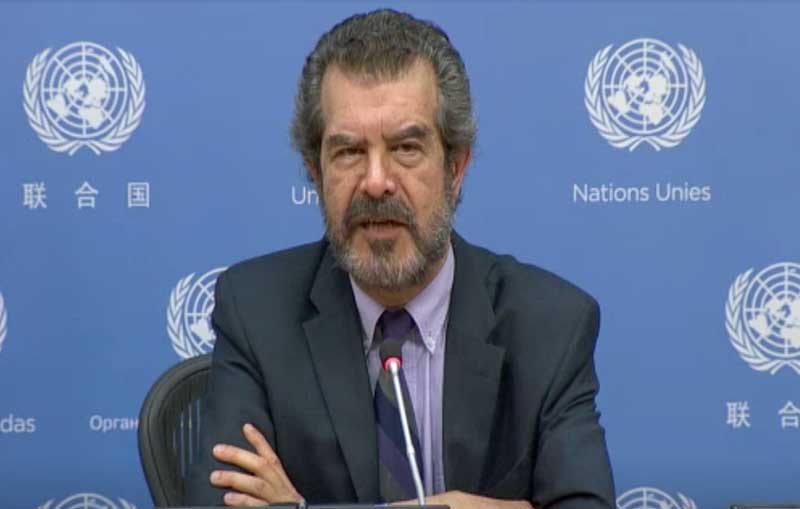Former students of Santa Clara Law International Human Rights Clinic (“IHRC”) submitted a report to the UN Special Rapporteur on the Human Rights of Migrants advocating for eliminating immigration detention of children in the United States.
UN Special Rapporteurs (SRs) are independent experts appointed by the U.N. Human Rights Council under a country mandate or a thematic mandate. Their job is to monitor human rights situations, respond to individual complaints, conduct studies, and assess specific human rights violations. The mandate of the SR on the Human Rights of Migrants was first created in 1999 by the Commission on Human Rights (now the Human Rights Council), and it covers all countries. This is true regardless of ratification of any specific treaty, including the International Convention on the Protection of the Rights of All Migrant Workers and Members of Their Families – a treaty to which the U.S. is not a party.
The report by former IHRC students, Katherine Mirassou, Heather Fuchs, and Michelle Devereaux, was submitted in response to the SR’s request for input on a thematic report to the 75th session of the General Assembly on ending immigration detention of children and seeking adequate reception and care for them. The submitted report will be used to inform the SR’s work on this thematic report. The report addresses some of the work done by the Clinic in the area of immigrant detention over the last couple of years, as immigrant detention has come to the forefront of public discourse and under the spotlight of human rights advocates.
The report addresses 5 questions posed by the SR:
- Legislation and policy that prohibits or restricts the use of immigration detention of children and their families in the U.S. This includes the Flores Agreement, which mandates a 20-day detention limit with a basic standard of care for detained migrant children. The Trafficking Victims Protection Reauthorization Act (TVPRA) of 2008 codified some of the protections of the Flores Settlement, in part providing that unaccompanied children cannot be held by Customs and Border Patrol for more than 72 hours and then must be placed in the “least restrictive setting” possible once custody is transferred to the Department of Health and Human Services. The report all discusses AB 32- California Ban on Private Prisons as Immigration Detention Centers, which took effect on January 1, 2020. The law banned all private prisons within the state, including for use as immigrant detention centers, whereby disincentivizing detention altogether.
- Existing non-custodial alternatives to immigration detention of children in the US and how they effectively enhance the protection of the rights of migrant children and their families. The report discusses ICE’s defunct Family Case Management Program that provided support to families released from detention, as well as the previous success of providing additional financial resources for programs to ensure legal representation and access to community-based support organizations rather than increasing the budgets of detention centers.
- Existing good practices taken in the US to protect the human rights of migrant children and their families while their migration status is being resolved. The report discusses in more depth the Flores Settlement and the TVPRA, in addition to the US Commission on Civil Rights report from October 2019, which recommended that immigrant detention centers in the US meet certain requirements of care.
- Challenges or obstacles in the development or implementation of alternatives to immigration detention of children and their families. The US government argues that strategies such as the “zero-tolerance” policy disincentivize migrants from abandoning their immigration court hearings upon release from detention centers, although all experts counter this assertion. Additionally, the US government publicly acknowledged that because the purpose of the “zero tolerance” policy is deterrence, the brutal conditions detained immigrants face in detention and the lasting detrimental effects on migrant children as a result of family separation and indefinite detention were an explicitly intended consequence of the policy. The report emphasizes that not only are policies used by the U.S. government inhumane and the harm long-lasting, but they have been proven to be ineffective in deterring immigration.
- Support other stakeholders could provide to strengthen the development or implementation of non-custodial alternatives to immigration detention of children and their families. The report urges that the US government be held accountable for the human rights violations it has committed against immigrant children in the course of its detention policies, and that these policies must be put to an end before any child endures further irreparable harm. Further, stakeholders must ensure that the Flores Settlement remains in effect and should demand that the U.S. ratify the Convention on the Rights of the Child.
Katherine Mirassou is an IHRC student.
